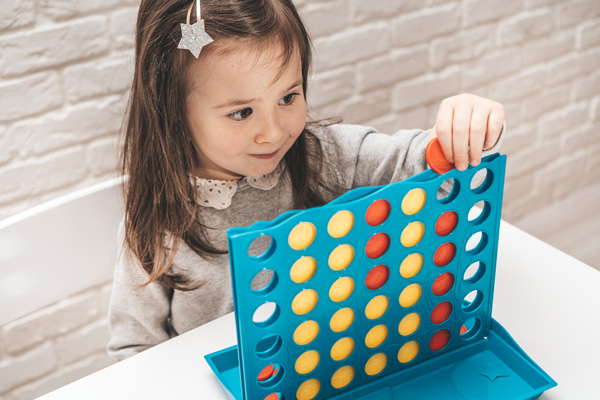Strategies for Students Who Struggle With Unstructured Times
Unstructured times can be a struggle for students with Anxiety, Autism Spectrum Disorder (ASD) or Attention Deficit/Hyperactivity Disorder (ADHD). The nature of these periods of time can prompt some students to exhibit emotional and behavioural difficulties that we as teaches would like to minimise. Fortunately, there are many strategies teachers can use to help their students cope with the difficulties of unstructured times.
Read more
Beyond Winning and Losing: Teaching Students to be Good Sports
The reaction of some students to losing in a competitive situation can be detrimental to themselves and to others. As winning and losing are a normal part of life, it’s important that we foster certain skills and abilities to guide these students to become good sports.
Read more
Hooked on rewards
While rewards can help motivate a student in the short term, students can become hooked on these rewards, making them quite detrimental in the long run. So if we want our students to be motivated, but run the risk of getting them hooked on rewards, how can we motivate good behaviours?
Read more
How do I help my child who is compulsively lying?
Although lying isn’t something we want our kids to do, it is a normal part of development. All children lie at different times, and it is, in fact, a sign that children are learning to understand how others think and feel. However, lying should be a concern when it becomes habitual—when a child lies often, and sometimes without obvious reason. This is what we call compulsive lying.
Read more
What is Emotional Regulation?
Emotional regulation is the ability to identify, understand, express and manage emotions in a healthy way. Dolly Bhargava explores emotional regulation through definition and example with academic references.
Read more
Teaching Emotional Regulation
Emotional regulation is a skill that is learned. Some children develop a better sense of regulating and controlling their emotions than others in the natural course of growing up but others do not develop the skill so well. This guide is therefore aimed at helping you as parent, carers, teachers or health professionals, to teach emotional regulation skills. To do this, we use a toolkit called CHARGE and this is going to help the child, adolescent or adult express and manage their emotions in a healthy way.
Read more
Teaching Theory Of Mind Skills in Children and Adolescents with Autism Spectrum Disorder
Theory of mind skills can often be undeveloped in people with Autism Spectrum Disorder (ASD). With support, theory of mind can be nurtured. This short article discusses simple activities you can do at home or in the classroom to help nurture theory of mind skills in children and adolescents with ASD.
Read more
Why Children with Autism Spectrum Disorder have difficulties with Emotional Regulation
Exploring the causes of emotional regulation problems and why they occur in children with Autism.
Read more
Why Children with ADHD have difficulties with Emotional Regulation
Ongoing research has shown that individuals with neurodevelopmental disorders such as ADHD are more prone to emotional dysregulation. In this article we explore why.
Read more
What is Autism Spectrum Disorder?
Autism Spectrum Disorder is a neurodevelopmental disorder that affects the growth, development and functioning of the brain. Children with ASD typically find social interaction challenging and will often have restricted, repetitive patterns of behaviour. Let’s explore ASD in more detail to learn more about brain development and the behaviours exhibited by children with ASD.
Read more
What Are the Effects of Family Conflicts on Children?
Many families have their arguments but when they escalate to cause family conflicts it can have long-term effects on children and their behaviour.
Read more
How to Talk to Your Child about COVID-19: 7 Helpful Tips.
With news about COVID-19 dominating the media and our daily lives changing significantly and rapidly to combat the pandemic, it’s no surprise that many children are feeling uncertain, anxious or frightened. Now, more than ever, we need to make sure that we’re there for our children to help them through this period of uncertainty.
Read more
How to Support Your Child through COVID-19: 10 Helpful Tips.
With news about COVID-19 dominating the media and our daily lives changing significantly and rapidly to combat the pandemic, it’s no surprise that many children are feeling uncertain, anxious or frightened. Now, more than ever, we need to make sure that we’re there for our children to help them through this period of uncertainty.
Read more
Seven ways to create opportunities for choice making
As adults, we constantly make choices of various size and significance throughout each day. The ability to make choices impacts our quality of life, and allows us to be independent and make sure our voice is heard. We begin learning how to make choices from an early age, so it’s important that we provide students of all ages with opportunities to make choices to facilitate the development of this crucial life skill.
Read more


